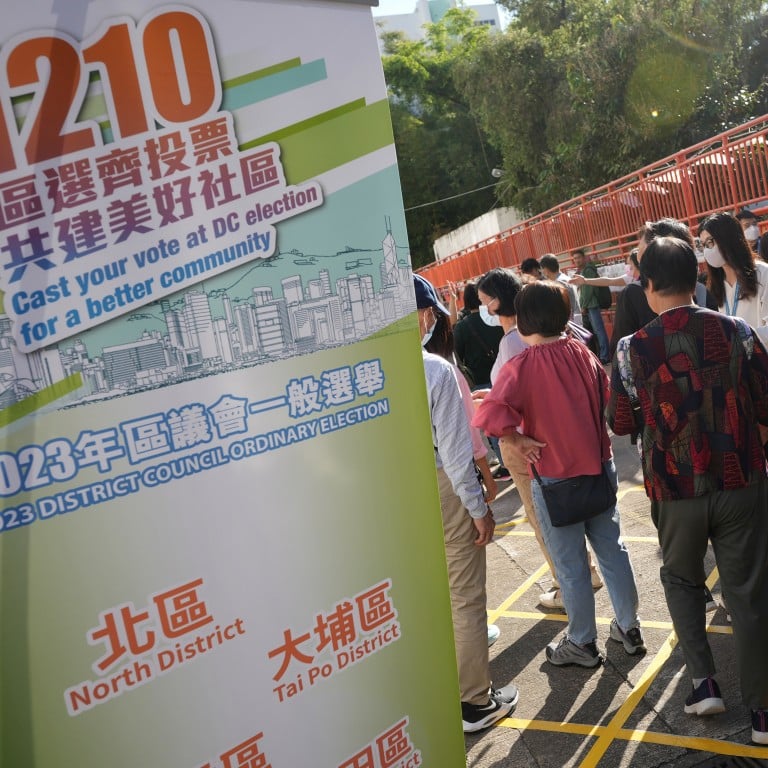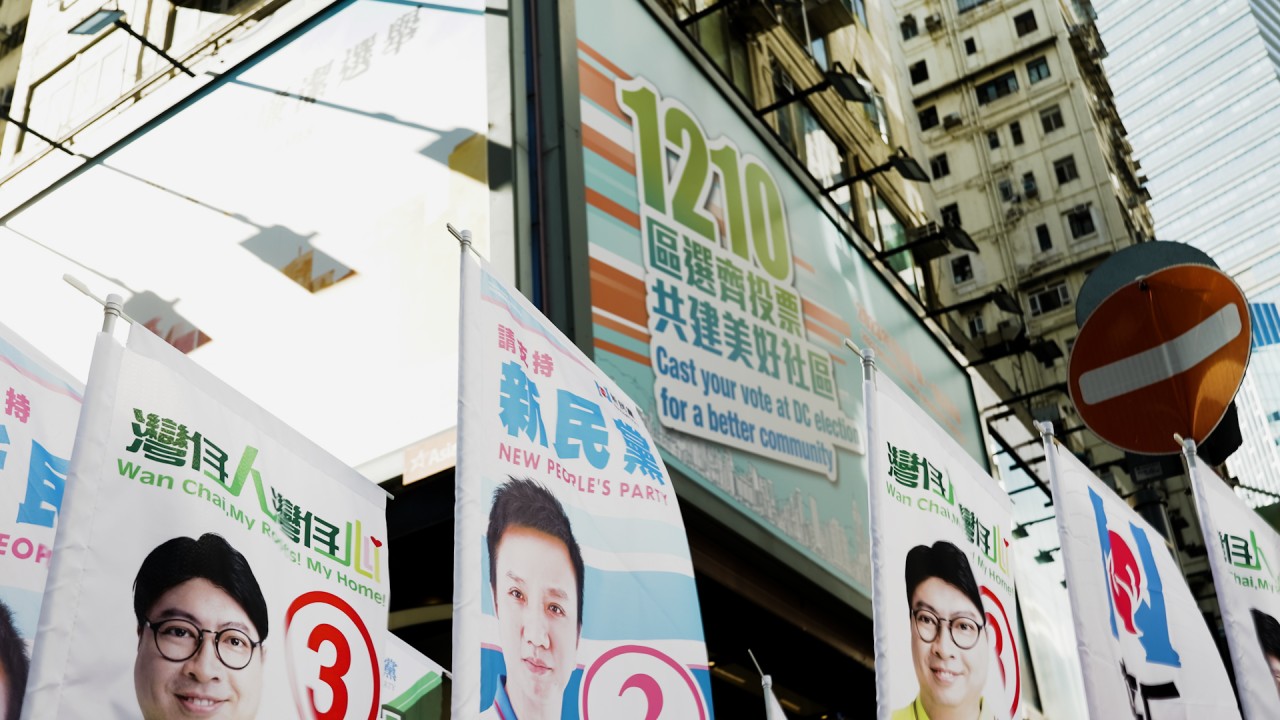
First Hong Kong district council poll after ‘patriots-only’ electoral overhaul cost taxpayers HK$1.2 billion
- With record-low election turnout of 27.59 per cent, government spent an average of HK$102 on publicity for each vote in December 10 poll
- Sum was about 90 per cent more than HK$635 million spent on 2019 election
The Constitutional and Mainland Affairs Bureau told the Legislative Council on Tuesday that the latest cost estimate for the December 10 election was HK$1.218 billion.
The sum was 91.8 per cent more than the HK$635 million spent on the 2019 election. The government told lawmakers back in March 2019 that only HK$7.5 million had been set aside for a three-stage promotion campaign for that year’s election.
The total cost of the 2023 election was spent across three financial years. Out of a revised budget of HK$992 million for the 2023-24 financial year, HK$235 million was spent on staff costs and HK$122 million was attributed to publicity.
The bureau told lawmakers in January that for the publicity drive more than 1.5 million posters and leaflets were printed, about 4,000 adverts were placed on public transport, nearly 99,000 bunting rows were hung up and 359 large billboards were set up.
The all-out promotion blitz included countless public appearances and social media posts by officials from October to December. An Observatory forecaster even reminded the audience about the election in a weather segment aired in November.
“The government even fully mobilised resources and adopted a number of creative publicity means, such as the ‘Night Vibes district council election’ … to capture public attention and appeal to electors to actively cast their votes,” the bureau said in a reply to lawmakers’ questions on the budget plan.
“Such publicity work achieved a positive impact and received wide public recognition.”
The 2023 election turnout of 27.59 per cent marked a record low. With 1,195,331 people casting their ballots, the government spent an average of HK$102 on publicity for each vote.
December’s poll was the first to be held after the government overhauled the district councils earlier last year to align with Beijing’s “patriots ruling Hong Kong” policy direction.
The chief executive appointed 179 out of a total of 470 members in the new district councils, while only 88 were returned by popular vote on December 10. Another 176 seats were chosen by 2,532 members of district committees.
All 470 Hong Kong district councillors appointed to 3 neighbourhood committees
In the 2019 poll, 95 per cent of the seats were returned by popular vote. The pro-democracy bloc won 392 out of 452 seats amid the height of the social unrest. The election also saw a record turnout of 71.23 per cent.
No opposition candidate was able to obtain sufficient nominations to run in the 2023 poll.
Meanwhile, the bureau also plans to spend HK$379 million in the 2024-25 financial year for the 2025 Legislative Council election. The Registration and Electoral Office will add 16 posts in preparation of the poll.


